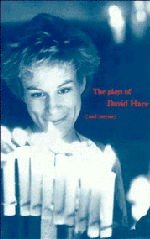Book contents
- Frontmatter
- Contents
- Acknowledgements
- Introduction: a statement of departure
- 1 The sixties revolution
- 2 Stepping into the past
- 3 A turning over
- 4 The people's war and peace
- 5 Sense of an ending
- 6 The foundry of lies
- 7 Dreams of leaving
- 8 Drawing a map of the world
- 9 All our escapes
- 10 Painting pictures
- 11 The moment of unification
- 12 Strapless
- 13 Heading home?
- 14 Stepping into the future
- Conclusion: a statement of arrival
- Notes
- Select bibliography
- Index
Introduction: a statement of departure
Published online by Cambridge University Press: 10 May 2010
- Frontmatter
- Contents
- Acknowledgements
- Introduction: a statement of departure
- 1 The sixties revolution
- 2 Stepping into the past
- 3 A turning over
- 4 The people's war and peace
- 5 Sense of an ending
- 6 The foundry of lies
- 7 Dreams of leaving
- 8 Drawing a map of the world
- 9 All our escapes
- 10 Painting pictures
- 11 The moment of unification
- 12 Strapless
- 13 Heading home?
- 14 Stepping into the future
- Conclusion: a statement of arrival
- Notes
- Select bibliography
- Index
Summary
David Hare's production of King Lear opened in the Olivier Theatre on 14 December 1986 just two weeks after the end of the run of Pravda, and while The Bay at Nice and Wrecked Eggs continued on the Cottesloe stage. In the autumn of 1993, Hare's trilogy on British institutions was scheduled to be performed on a single day. Such domination of the National Theatre is unparalleled in its history, and has no equivalent by a contemporary writer at the Royal Shakespeare Company; it amounts to much more than a residency of the kind Hare had at the Royal Court (1969–71) or Nottingham (1973) and assigns to him a privileged position within British theatre.
Such status is particularly rare for a dramatist of his generation writing from a ‘socialist’ perspective and yet, in contrast to many of his contemporaries, Hare's work stands without any comprehensive study. The omission is partly explained by Hare's own deliberately enigmatic position, but he is also a troublesome and often troubled writer who uses his work as a way of resolving internal tensions, making systematic analysis particularly difficult. Any attempt to provide such a survey of a living and still fertile writer will inevitably be superseded, but Hare will continue to raise two eternal literary and historical problems.
- Type
- Chapter
- Information
- The Plays of David Hare , pp. 1 - 6Publisher: Cambridge University PressPrint publication year: 1995



